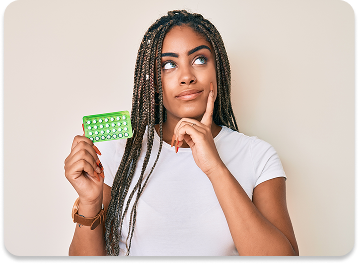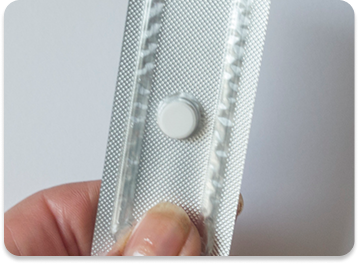
Birth Control
Here’s what you should know about
Birth Control:
Birth control is a way or method of preventing pregnancy. There are many forms of birth control that typically fall under six categories: hormonal, such as the pill or the IUD; barrier, such as condoms or(female) diaphragms; natural family planning, such as following the rhythms of your cycle (calendar method) or the pull-out method; and permanent birth control, such as vasectomies or tubal ligation (also known as tube-tying). Birth control is optimal for you if you are sexually active and do not desire to get pregnant, but it is also used to address other women’s health concerns such as endometriosis, PCOS (polycystic ovary syndrome), irregular periods, avoiding STDs, and even acne.
Birth control is highly effective and can successfully prevent pregnancy if used or done correctly, however, no form of birth control will 100% guarantee a pregnancy from occurring. Abstinence (abstaining from sex) is the only form of birth control that is guaranteed to prevent pregnancy.
It is important to know what type of birth control is right for you before attempting any kind. The symptoms of birth control, mainly hormonal, vary from person to person, but usually bring an onset of nausea, mood swings, weight fluctuation, and hormonal imbalances.
What are the different forms of birth control?

Hormonal
This type of birth control utilizes hormones naturally present in a woman’s body such as estrogen and progesterone. They block the release of an egg from the ovaries, thin the lining of the uterus, and thicken the mucus in the cervix to prevent sperm from reaching the egg.

Barrier and Non-Hormonal Methods
This method of birth control is any physical barrier worn by the male or female partner that prevents the sperm either from entering the vagina or reaching the cervix. It is also the best form of birth control to prevent STDs (sexually transmitted diseases).

Natural Family Planning
Also known as fertility awareness methods (FAMs) these are methods that involve tracking a woman’s menstrual cycle and body to predict when she is most likely to get pregnant. The goal is to avoid sex or use other birth control methods during her fertile days.

Permanent
This kind of birth control is surgically done either to the male or female partner wherein the tubes that release the sperm (male) or the tubes that receive sperm (fallopian – female) are severed or tied to prevent sperm from reaching the egg and fertilizing it.

Emergency Contraceptive
A method of birth control that can prevent pregnancy after unprotected sex or contraceptive failure. It is most effective when taken as soon as possible after unprotected sex.
Should you be on Birth Control?
How to make an informed, empowered decision
There are many different birth control options, with pros and cons for each. Again, choose the type of birth control that is best for you with the guidance and recommendation of your doctor.
Birth control can aid with period cramps and even acne, but on the other hand, can pose a variety of health risks, such as blood clots, mood swings, anxiety, heart attacks, infertility, and even cervical cancer. These risks are low but should be kept in mind for prolonged use. If any birth control becomes detrimental, stop use immediately.
Your sexual and reproductive health are important and should be treated with the utmost care and caution. Additionally, it is best to practice safe sex and get regular STD testing.
Should birth control not be effective, and you miss a period, know the different signs and symptoms of pregnancy and when you should take a pregnancy test.
Disclaimer:
When exploring birth control methods, it’s essential to research various options and consult a healthcare professional to make an informed decision that aligns with your unique needs and lifestyle. Each individual’s body and circumstances are different, so it’s important to choose a method that feels right for you—free from external pressures or influences. Remember, this is a personal choice that directly impacts your health and well-being. Prioritizing your comfort and understanding will empower you to make the best decision for your reproductive health.
Have Questions About Birth Control?
Ask Our Confidential Chatbot!


